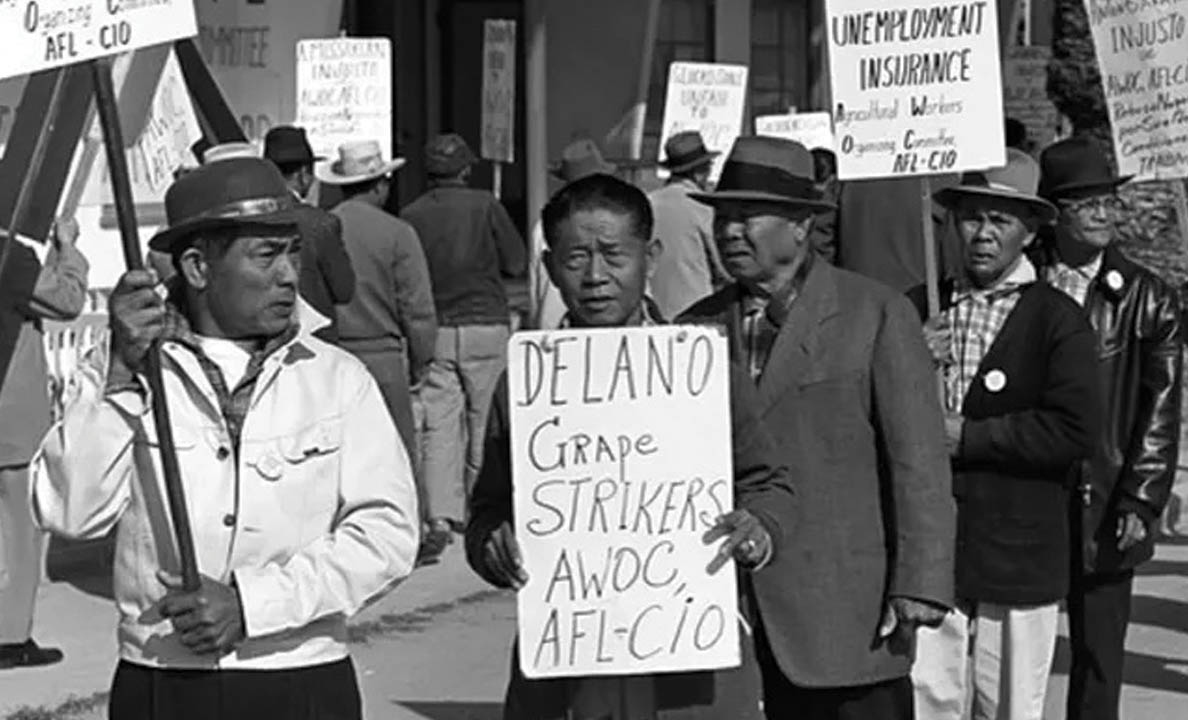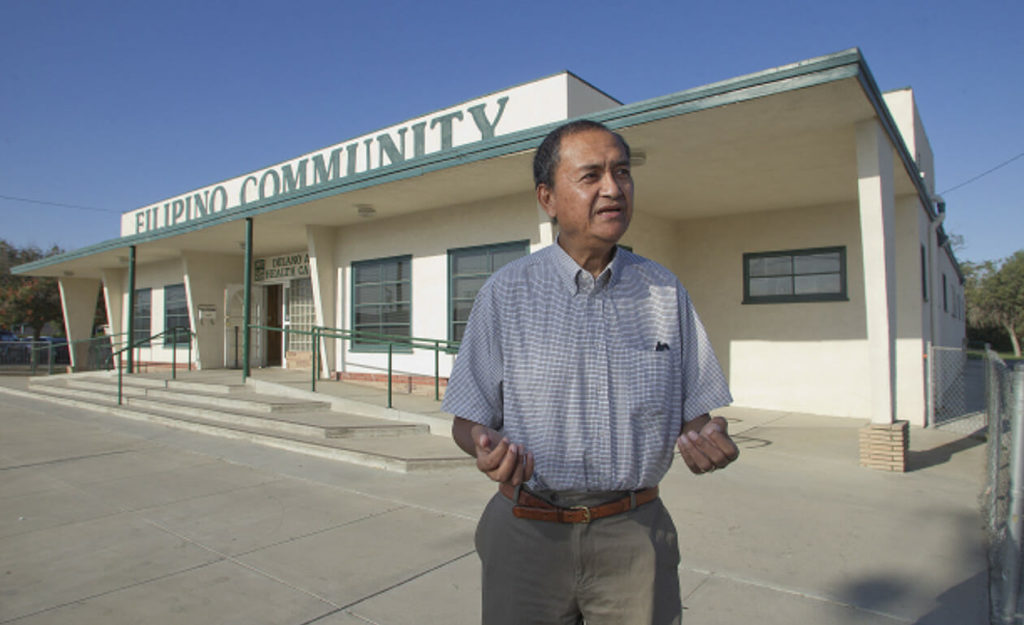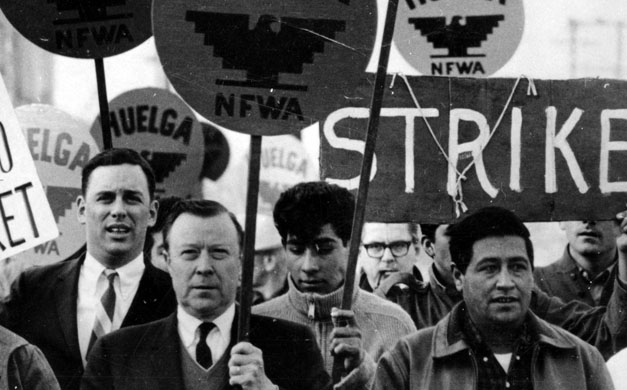
When we talk about Asian American history, most of us (even Asian Americans) know little to nothing about it. For example, I had never heard of the history of Filipino farmworkers until I went to college. Growing up in California, I’ve heard of Cesar Chavez and Dolores Huerta, and learned they were heroes in the global labor movement. But I had no idea it was Filipino Americans who launched the key moment in which Chavez and Huerta became household names.
On Sept. 7, 1965, a group of 1,500 Filipino farmworkers, led by leaders such as Philip Vera Cruz, Larry Itliong, Pete Velasco, and Andy Imutan, gathered at the Filipino Community Center in Delano, California. Organized as the Agricultural Workers Organizing Committee (AWOC), the Filipino farmworkers grew tired of the low wages and horrendous working conditions they had to endure daily. That evening, they voted to defy the local white grape growers and go on strike the following day, starting the five-year long struggle known as the Delano Grape Strike of 1965.

Although the Filipino leaders began the strike, they knew they would not be successful if they proceeded alone. They reached out to Cesar Chavez and Dolores Huerta, who had formed the mostly Mexican National Farm Workers Association (NFWA). Initially, Chavez felt unprepared to go on strike, but 10 days after AWOC walked off the grape fields, the NFWA joined their Filipino brothers on the picket line. They combined their unions to become the United Farmers Workers of America (UFW), an organization that remains very active to this day.
The strike eventually gained momentum, becoming a public battle that gained the sympathies of many people across the United States and throughout the world. There was a concerted international effort to boycott table grapes in support of the Filipino and Mexican farmworkers. Chavez became a hero and household name for leading and popularizing the movement. After five arduous years of struggle, dejected grape growers succumbed to the strikers and signed the first union contracts on July 29, 1970.
To this day, the Delano Grape Strike is the largest and most significant agricultural labor strike in U.S. history. It was also another significant moment in the long history of cross-racial solidarity in the fight for social justice. Yet, most people do not know it was started by a group of aging Filipino Americans. Why? Why is there a cultural and historical amnesia to this history or Asian American histories in general?
Could it be that society tends to prop up more successful (read: affluent) Asian Americans? Many of us hold in our minds images of successful Asian Americans who have excelled in the medicine or tech. Rarely do we know about poorer, working-class Asian Americans in history or who live and work amongst us today. Stories like the Delano Grape Strike disrupt the myth of Asian Americans as the “model minority” that Blacks and Latinos should emulate, a trope that reinforces social inequities for all people of color.
Could it be that the movement became more about personalities than about the movement? While Chavez’s charismatic leadership turned him into a powerful force for justice, his authoritative style might have weakened the organization he worked to build. Many members of the UFW eventually left the organization years after the strike because they believe the movement became more about Chavez himself, prompting Philip Vera Cruz to write, “Leadership is only incidental to the movement. It is the movement that is the most important thing.”

Could it be that we consciously or unconsciously refuse to let go of narratives that are inconvenient or unsettle the linear story of American progress? Immigrant labor is the product of global inequality spurred by colonialism. Both the Filipino and Mexican farm laborers of the Grape Strike left their homelands and migrated to the United States to work in jobs for wages Americans are unwilling to accept. When many workers fight for better working conditions, they are faced with hostility when their demands affect the bottom line. As a result, unions are far weaker now than they were in 1965. This undervalued labor becomes normalized and eventually invisible in our lives.
I think the throughline between these explanations is our tendency to overlook the people we take for granted. Think about who we prop up and highlight in our narratives while concomitantly occlude. As the years go by, the memory of the Delano Grape Strike grows more distant. And when we do find inspiration from the movement, Filipino Americans tend to be forgotten.
The collective amnesia of the Delano Grape Strike and the Filipinos who started it can be quite instructive. As we close this Asian American and Pacific Islander Heritage Month, let us remember and acknowledge the many people – Asian Americans and non-Asian Americans alike – who are essential to the world yet overlooked in history. It is their shoulders we all stand on. And their stories should not be neglected.
By Joseph Bernardo, Director of DEI, Capacity Building Programs, and Initiatives and Adjunct Professor, Asian and Asian American Studies



